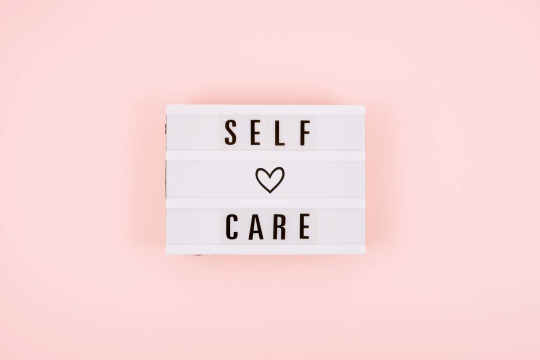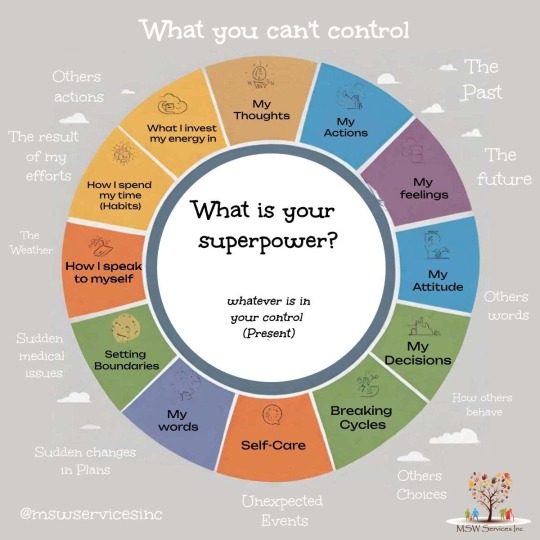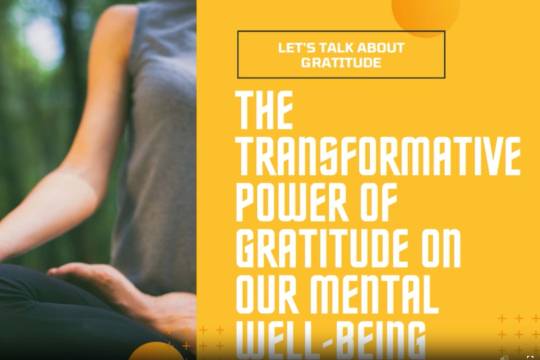Text
Women’s History Month: Empowerment through Mental Wellness

March, celebrated globally as Women’s History Month, serves as a beacon of recognition for the countless contributions of women to society, culture, politics, and the economy. Beyond acknowledging historical achievements, it’s a time to reflect on the personal and collective journeys of women towards empowerment and self-actualization. Central to this journey is the aspect of mental wellness—a realm where the power of thought plays a pivotal role in navigating challenges, dismantling barriers, and fostering an empowered sense of self.
The Interconnection of Thought and Empowerment
Empowerment, particularly for women, is often framed in terms of external achievements and societal recognition. However, the foundation of true empowerment lies within the realm of mental wellness and the understanding that we have control over our thoughts. This realization is not just liberating; it’s transformative. It signifies a shift from being passive recipients of circumstances to active architects of our reality.
Recognizing the Power Within
The journey towards mental wellness begins with the recognition that our thoughts, emotions, and perceptions significantly influence our experiences and interactions with the world. Women, through centuries of navigating patriarchal structures, have developed a resilience that is magnified when there is a conscious effort to harness and direct the power of thought towards positive outcomes.
The Role of Awareness in Thought Control
Awareness is the first step in understanding that we have control over our thoughts. It involves cultivating a mindful approach to our mental processes, recognizing patterns of negative thinking, and consciously choosing to focus on empowering and constructive thoughts. This level of self-awareness is a cornerstone of mental wellness and a powerful tool for personal empowerment.
Strategies for Empowerment through Mental Wellness
Understanding Control Over Thoughts
One of the most empowering mental wellness practices is understanding and embracing the fact that you have control over your thoughts. This realization is powerful. It shifts the narrative from being a passive recipient of thoughts and emotions to an active participant in shaping one’s mental landscape.
This isn’t to say that changing thought patterns is simple; rather, it’s to acknowledge that with practice, dedication, and sometimes professional support, it’s possible to direct your thoughts in a way that serves you. Techniques such as cognitive-behavioral therapy (CBT), mindfulness, and meditation have been shown to be effective tools in this endeavor, helping to replace self-limiting beliefs with empowering affirmations and perspectives.
Recognize Your Thought Patterns: The first step towards taking control of your thoughts is to recognize your habitual thinking patterns. Are they predominantly positive, or do they skew towards negativity? Awareness is key to change.
Challenge Negative Thoughts: Once you’re aware of your thought patterns, challenge and question the negative thoughts. Are they based on facts, or are they assumptions? This process helps in gradually shifting towards a more positive and empowering mindset.
Practice Mindfulness: Mindfulness teaches us to observe our thoughts without judgment, allowing us to detach from them and not get swept away by negative spirals. It’s about being present in the moment and finding peace within.
Cultivate Positive Thinking: Encourage a positive mindset through affirmations, gratitude, and focusing on solutions rather than problems. This doesn’t mean ignoring challenges but rather approaching them with a hopeful and constructive attitude.
Seek Support When Needed: Sometimes, the journey towards mental wellness and empowerment requires professional support. Seeking help from therapists or counselors is a strength, not a weakness. It’s a step towards taking control of your mental health and, by extension, your life.
Conclusion: Embracing Mental Wellness as a Path to Empowerment
Women’s History Month is not only a time to celebrate past achievements but also an opportunity to focus on the present and future of women’s empowerment. Central to this endeavor is the recognition of mental wellness as a foundational element of empowerment. By understanding and exercising control over our thoughts, embracing self-compassion, engaging in mindfulness, and building supportive communities, women can navigate the complexities of life with confidence and resilience. As we honor the contributions of women throughout history, let us also commit to supporting and empowering one another through the pursuit of mental wellness. In doing so, we not only honor those who came before us but also pave the way for a future where every woman recognizes and utilizes the power of her thoughts to create a life of purpose, joy, and empowerment.
At Florida Counseling for All, we are dedicated to assisting our clients in living lives filled with greater peace, balance, purpose, and fulfillment. Our team of specialized clinicians is here to support your journey towards enhanced well-being, using evidence-based techniques and a compassionate approach.
If you or someone you know is struggling with anxiety, depression, stress and relationship challenges, or any other mental health concern, don’t hesitate to reach out. Schedule a complimentary call with us to explore our services and find the support you need.
0 notes
Text
Creating a Self-Care routine by Understanding and Overcoming Emotional Hurdles

This month we have discussed in different ways the superpower of self-care. Remember our superpowers are the areas we do have control over and self care is one of them. For our last blog of the month we will discuss creating a self-care routine.
In the realm of emotional well-being, the concept of self-care often carries an undeserved stigma. Rooted in early childhood schemas and reinforced by past traumas, many of us grapple with feelings of inadequacy, are discouraged from expressing emotions, or have been labeled selfish when we dare to prioritize our own needs. These deep-seated beliefs act as formidable barriers to recognizing the necessity of self-care and fostering positive attitudes towards it. This blog delves into the critical role of awareness in overcoming these barriers, guiding readers on a vital journey of self-discovery and care.
The Shadows of the Past: How Childhood Schemas and Trauma Shape Our Attitudes Towards Self-Care
From a young age, many of us are taught to put the needs of others before our own. This lesson, while valuable in fostering empathy, can lead to the development of harmful schemas—mental frameworks that dictate our understanding of the world and ourselves. For those who have experienced domestic violence, emotional neglect from immature parents, or abuse, the message is even more damaging. These experiences can instill a deep-rooted belief that self-care is a luxury at best and a selfish act at worst.
The Barrier of Misplaced Guilt
One of the most insidious effects of these early experiences is the sense of guilt they attach to self-care. This misplaced guilt convinces us that taking time for ourselves is a direct theft from those we care about, rather than an investment in our ability to be present and supportive for them.
The Perpetual ‘Yes’ Person
Fueled by these childhood schemas and past traumas, many of us become perpetual ‘yes’ people, habitually downplaying our own needs to avoid conflict or disapproval. This relentless prioritization of others over ourselves not only drains our emotional reservoirs but also prevents us from recognizing our own worth and the critical importance of self-care.
The Power of Awareness: Shifting the Paradigm
Awareness is the first step toward change. By becoming mindful of the origins of our attitudes towards self-care, we can begin to question and dismantle the harmful beliefs that hold us back.
Understanding the ‘Airplane Safety’ Principle
The advice given in airplane safety demonstrations, “put your mask on first before helping others,” serves as a powerful metaphor for self-care. This principle underscores the reality that taking care of oneself is not an act of selfishness but a prerequisite for offering the best version of ourselves to those around us. It is only when we are emotionally replenished that we can truly support and be there for others.
Embracing Self-Care as a Journey of Self-Discovery
Self care is more than just bubble baths and occasional treats; it is an ongoing process of self-discovery and emotional nurturing. This journey requires us to confront and heal from our past traumas, reevaluate our priorities, and learn to set healthy boundaries. By doing so, we not only enhance our own well-being but also deepen our relationships with others.
Practical Steps Towards Building a Self-Care Routine
Building a Self-Care Routine
Creating a self-care routine is a personal journey that varies from one individual to another. Here are some steps to guide you in developing a routine that caters to your emotional well-being:
Reflect on Your Needs:Reflect on Your Needs: Take time to reflect on what aspects of your well-being need more attention. Is it your emotional, physical, mental, or spiritual health?
Set Realistic Goals: Start with small, achievable goals. If emotional care is a priority, consider practices like journaling, therapy, or mindfulness exercises.
Incorporate Activities You Love: Self-care doesn’t have to be a chore. Incorporate activities that bring you joy and relaxation.
Practice Mindfulness(SFBT): Mindfulness can help you become more aware of your needs and feelings. It can be a powerful tool in recognizing when you’re neglecting your well-being.
Seek Support: Sometimes, overcoming barriers to self-care requires external support. Don’t hesitate to reach out to therapists, support groups, or loved ones.
Be Patient and Kind to Yourself: Remember, developing a self-care routine is a process. Be patient and kind to yourself as you navigate this journey.
Practice Regularly: Like any routine, consistency is key. Incorporate self-care practices into your daily life, but remain flexible and gentle with yourself.
Conclusion: A Vital Shift in Perspective
Overcoming the barriers to self-care requires a profound shift in perspective, fueled by awareness and compassion for oneself. By acknowledging and addressing the impact of childhood schemas and past traumas, we pave the way for a healthier relationship with self-care. This journey is not just about self-preservation; it’s about thriving. As we learn to put our own masks on first, we become better equipped to enrich the lives of those around us, embodying the true essence of care and support.
In embracing this vital journey, remember that self-care is not a destination but a path to discovering your fullest potential. Let’s walk this path together, towards a future where taking care of ourselves is seen not as an act of selfishness, but as the most profound act of love we can offer to both ourselves and the world.
Take action
It’s common to believe that our past experiences have little to no impact on our present lives, convincing ourselves we’re effectively managing everything. Yet, persistent dissatisfaction with our circumstances, decision-making struggles, a lack of personal control, a need to control others, or underlying unhappiness can signal the need for deeper introspection. These feelings are indicators that life’s potential is not being fully realized. Life isn’t meant to be navigated with such burdens; it’s a sign to delve deeper into understanding how past experiences shape our current reality and well-being. Recognizing this can be the first step towards healing, and seeking support from mental health services can be a valuable part of this journey. Our professionals offer a compassionate space to explore these issues, providing tools and strategies to move towards a more fulfilled and balanced life.
0 notes
Text
Navigating Relationship Challenges: The Essential Guide to Self-Care and Therapeutic Support

Introduction
Building healthy relationships, whether platonic, romantic, or professional, fundamentally it begins with self-care. By prioritizing self care rituals it is making an informed decision to incorporate daily routines that will help to set the tone for the day. Being intentional about your self care helps to empower individuals to look after their own health efficiently and conveniently, in collorboration with other ares of their lives.The relationship we have with ourselves sets the tone for how we interact with others. This blog explores the symbiotic relationship between self-care and relationship health and offers guidance on finding the best therapists that connects with you and can help you with your relationship issues.
Self-Care: The Foundation
Self-care isn’t just about pampering ourselves; it’s about engaging in activities that nurture our mental, emotional, and physical well-being. Regular self-care practices enable us to be more present, empathetic, and responsive in our relationships. By maintaining a healthy relationship with ourselves, we reduce dependency and unrealistic expectations from our partners or friends, fostering a more balanced and fulfilling connection.
At its core, self-care involves recognizing and attending to your needs, setting boundaries, and engaging in activities that nurture your physical, emotional, mental and spiritual health. These practices lay the groundwork for healthy relationships by fostering a sense of self-awareness and personal fulfillment, which in turn, enhances our capacity to connect with others in meaningful and supportive ways.
Communication and Boundaries
Effective communication and clear boundaries are pillars of healthy relationships. Self-care enhances our understanding of personal needs and limits, empowering us to communicate them assertively. This ensures mutual respect and understanding, minimizing conflicts and enhancing connection.
Understanding Relationship Challenges
Every relationship encounters its set of challenges, such as communication breakdowns, trust issues, and external stressors, which can stem from misaligned expectations or unresolved conflicts. Recognizing and addressing these challenges is the first step towards fostering a healthier partnership.
The Importance of Emotional Intelligence and Self-Care
Emotional intelligence plays a crucial role in self-care, enabling individuals to recognize, understand, and manage their emotions and those of others. Practices like mindfulness, meditation, and yoga can significantly aid in emotional regulation, providing a foundation for emotional well-being. Incorporating self-care routines that address emotional balance is essential for overall wellness.
Individual Therapy for Relationship Growth
Even when one partner is hesitant or unable to participate in couples therapy, individual therapy can offer valuable insights and personal growth opportunities. It provides a space to explore personal concerns and develop skills that positively impact the relationship. Individual therapy can serve as a complementary or alternative path to understanding and improving one’s contribution to relationship dynamics.
Seeking Professional Help: Couples Therapy
Couples therapy offers a structured approach to addressing relationship dynamics, with sessions typically lasting between 50-70 minutes. These sessions are designed to uncover underlying issues, improve communication styles, and foster a more fulfilling relationship. Finding the right therapist, one who aligns with your needs, values and schedule, is crucial for the therapy’s success.
There are different evidenced based modalities and you can explore which ones work best for you
Emotionally Focused Therapy (EFT): Focuses on enhancing emotional attachment and addressing negative interaction patterns within the relationship.
Cognitive Behavioral Couples Therapy (CBCT): Aims to improve communication skills and change negative behavior patterns.
Narrative Therapy: Helps couples understand and rewrite the narrative of their relationship, highlighting and building on strengths.
Solution-Focused Brief Therapy (SFBT): Concentrates on finding solutions in the present time and exploring one’s hope for the future to find quicker resolutions to relationship issues.
The Gottman Method focuses on enhancing relationship health by improving communication, deepening emotional connection, and addressing conflicts constructively through research-based interventions
Building a Foundation for Healthy Relationships
Successful navigation of relationship challenges requires effective communication, understanding, and mutual growth. Strategies such as prioritizing trust, managing conflicts constructively, and supporting each other through external stressors are fundamental. Additionally, embracing change and growth, both individually and as a couple, can strengthen the relationship over time.
Ultimately, the path to navigating relationship challenges and embracing self-care involves a blend of personal introspection, mutual effort, and professional guidance. Whether through couples therapy, individual therapy, or self-care practices focused on emotional well-being, the journey is about creating a balanced, supportive, and evolving partnership.
Conclusion
Investing in self-care is crucial for cultivating healthy relationships. It helps us understand and articulate our needs, fostering deeper connections. If relationship challenges arise, seeking a therapist tailored to your specific needs can provide the support and tools necessary for growth and healing.
How to Connect:
* Visit Our Website: Navigate to our team
* Choose a Therapist: Browse our team’s profiles to find a therapist whose expertise and approach resonate with you. https://floridacounselingforall.com/our-team/ Each therapist’s profile includes their specialties, the modalities they practice, and a brief introduction to their personal philosophy on mental health care.
* Schedule a free Consultation: Once you’ve selected a therapist, schedule an initial consultation. This session is an opportunity to discuss your goals, any specific concerns you have, and what you hope to achieve through therapy. It’s also a chance for you to assess how comfortable you feel with the therapist and decide if it’s the right fit for you.
Embark on Your Journey: After the initial consultation, you and your therapist will work together to outline a personalized care plan. Whether you’re seeking support for resilience, self-care strategies, or navigating life’s challenges, our therapists are here to guide and support you every step of the way.
0 notes
Text
Embracing Self-Care: Your Super Power for Enhanced Mental Health and Self-Love

Understanding the Essence of Self-Care
In the journey of life, we often prioritize various aspects – career, relationships, and social commitments, sometimes neglecting the most crucial element: ourselves. As we approach Valentine’s Day, a time synonymous with love and affection, it’s an opportune moment to focus on a vital, yet frequently overlooked super power – Self-Care.
Self-care is not just about occasional indulgences; it’s a consistent practice that profoundly impacts our day-to-day functioning and mental health. It’s a holistic approach that nurtures our body, mind, and soul, ensuring we are at our best, not just for ourselves but also for those around us.
The impact of neglecting self-care on mental health can be significant and multifaceted. Self-care is a broad term that encompasses various practices and activities aimed at maintaining or improving one’s physical, mental, and emotional well-being. When individuals overlook self-care, it can lead to several detrimental effects on mental health, which include:
Increased Stress and Anxiety: Without adequate self-care, stress levels can rise, contributing to heightened anxiety. Stress is a natural response to challenges, but chronic stress can be harmful to mental health, potentially leading to anxiety disorders.
Decline in Mood and Emotional Well-being: Neglecting self-care can lead to mood disturbances. Activities like exercise, sufficient sleep, and social interactions play a crucial role in regulating mood. Lack of these can result in feelings of sadness, irritability, or even depression.
Impaired Cognitive Functions: Self-care activities, especially those involving physical health like adequate sleep and nutrition, directly affect cognitive functions. Poor self-care can lead to diminished concentration, memory, and decision-making abilities.
Burnout and Fatigue: Continuous neglect of self-care often leads to burnout – a state of emotional, physical, and mental exhaustion. This is particularly relevant in high-stress environments like workplaces or during intense life events.
Worsening of Existing Mental Health Conditions: For individuals with pre-existing mental health conditions, lack of self-care can exacerbate symptoms. It can also hinder the effectiveness of ongoing mental health treatments.
Decreased Resilience: Regular self-care practices build emotional resilience, helping individuals to cope with life’s challenges. Neglecting these practices can make one more susceptible to the negative impacts of stress and adversity.
Social and Relationship Challenges: Self-care includes maintaining healthy social interactions. Neglecting this aspect can lead to isolation and strained relationships, which can further impact mental health.
Physical Health Consequences: Physical and mental health are closely linked. Poor self-care can lead to physical health issues, which in turn can negatively affect mental health, creating a cycle of deteriorating overall well-being.
The Impact of Self-Care on Mental Health
Self-Care and Mental Health: Engaging in self-care has been shown to improve mental health significantly. It helps in managing stress, lowering the risk of mental illness, and boosting energy. Regular exercise, a balanced diet, adequate sleep, and mindfulness practices are some of the essential components of self-care that can lead to a happier, more balanced life.
Self-Care for Enhanced Productivity and Relationships: Regular self-care can lead to increased productivity and focus. By taking time for oneself, it’s possible to recharge and thus bring more energy and clarity to everyday tasks. This also translates into better relationships, as caring for oneself enables one to be more present and engaged in interactions with others.
Energy and Emotional Resilience through Self-Care: Quality self-care involves caring for our energy sources – nutrition, sleep, physical activity, and mental state. These aspects are crucial for building resilience, especially for those suffering from mental health issues like depression. Self-care is about valuing ourselves enough to prioritize our health, well-being, and happiness.
Self-Love: The Valentine’s Day Focus
Valentine’s Day, often centered on showing love to others, is also a perfect time to celebrate self-love. Self-love is acknowledging your worth, accepting yourself as you are, and taking steps to care for your own needs. It’s a powerful affirmation that you matter, and your well-being is important.
Steps to Cultivate Self-Love
Self-Acceptance: Embrace your strengths and weaknesses. Understand that imperfections are part of being human and do not define your worth.
Mindful Practices: Engage in mindfulness or meditation. These practices help you stay connected with your inner self, fostering a deeper sense of love and respect for who you are.
Setting Boundaries: Learn to say no. Setting healthy boundaries is a form of self-respect and a key aspect of self-love.
Self-Compassion: Be kind to yourself, especially during challenging times. Replace self-criticism with positive affirmations and understanding.
Celebrate Your Achievements: No matter how small, celebrating your successes boosts self-esteem and reinforces positive self-perception.
Conclusion
As we step into this month, let’s remind ourselves that self-care is not selfish; it’s essential. By embracing self-care and self-love, we are not only enhancing our mental health but also enriching our relationships and overall quality of life. This Valentine’s Day, while you spread love to others, don’t forget to shower some on yourself too. Remember, the journey to loving others begins with loving yourself. Let’s make self-care our super power, not just this month but every day.
At Florida Counseling for All, we are dedicated to assisting our clients in living lives filled with greater peace, balance, purpose, and fulfillment. Our team of specialized clinicians is here to support your journey towards enhanced well-being, using evidence-based techniques and a compassionate approach.
If you or someone you know is struggling with anxiety, depression, stress and relationship challenges, or any other mental health concern, don’t hesitate to reach out. Schedule a complimentary call with us to explore our services and find the support you need.
0 notes
Text
Coping with Winter Blues: Harnessing Your Control Superpower

As the days grow shorter and the nights longer, many of us may experience the telltale signs of the winter blues, clinically known as Seasonal Affective Disorder (SAD). It’s a type of depression that’s related to changes in seasons, beginning and ending at about the same times every year. If you’re feeling down during the colder, darker months, you’re not alone.
What Are Winter Blues?
Winter blues can make you feel moody and sap your energy. This seasonal funk is characterized by the desire to hibernate: sleeping more, craving carbs, gaining weight, and withdrawing from social interaction. Yes, even in Florida, the “Sunshine State,” residents aren’t immune to the winter blues. While SAD is more common in areas far from the equator with very short winter daylight hours, it’s crucial to recognize that SAD isn’t solely caused by a lack of sunlight. Factors such as genetic predisposition, individual differences in temperature regulation, and the overall psychological impact of seasonal changes can contribute to the condition.
In Florida, the changes in seasons may not be as pronounced as in more northern states, but the shift to shorter days and the potential for cooler weather can still affect moods. Even Floridians might experience SAD due to changes in routines, such as spending less time outdoors, which can disrupt physical activity patterns and social interactions—both known to influence mood and energy levels.
The Superpower of Control
Let’s revisit the superpower we discussed in a previous blog: distinguishing what we can control from what we cannot. It’s especially potent when dealing with winter blues.
What You Can’t Control
The Weather: We cannot change the short days and lack of sunlight.
The Season: Winter comes every year, regardless of our preferences.
Others’ Reactions: How people around us react to our mood or the season is out of our hands.
What You Can Control
How You Invest Your Energy: You can choose activities that boost your mood and energy levels.
Self-Care: Establishing a routine that includes exercise, a healthy diet, and sufficient sleep can mitigate symptoms of SAD.
Setting Boundaries: Protect your energy by saying no to commitments that don’t serve your well-being.
Actionable Steps to Cope with Winter Blues
Light Therapy: Invest energy in finding a good light therapy box. Light therapy mimics natural outdoor light and appears to cause a change in brain chemicals linked to mood.
Stay Active: Exercise can be as effective as medication in treating mild to moderate depression. Commit to regular physical activity, whether it’s a home workout or a brisk walk.
Connect with Others: Social interaction is crucial. Engage in community events or reach out to friends and family.
Mindfulness and Meditation: These practices can improve your state of mind and outlook on life. Dedicate time to mindfulness each day, focusing on the present moment.
Diet: Pay attention to what you eat. A diet high in fruits, vegetables, whole grains, and lean protein can help boost your mood and energy.
Professional Help: If your symptoms are severe, consult a mental health professional who can provide therapy or discuss other treatments.
Investing Your Energy Wisely
It’s essential to be deliberate about how you invest your energy when coping with the winter blues.
Prioritize Activities That Make You Feel Good: Whether it’s reading, painting, or cooking, make time for activities that bring you joy.
Positive Affirmations: How you speak to yourself can significantly impact your mood. Practice self-compassion and encouraging self-talk.
Break the Cycle: If you notice negative habits forming, such as overeating or isolating yourself, take small steps to break these cycles.
Using Cognitive Behavioral Therapy (CBT) Techniques
CBT is a widely recognized and effective treatment for depression, including SAD, focusing on two specific techniques:
Cognitive Restructuring
This technique involves identifying and challenging negative thought patterns and beliefs, and replacing them with more positive and realistic ones. When you catch yourself thinking, “This cold, dark weather will make me miserable,” cognitive restructuring helps you reframe this thought to: “The winter is a challenge, but I can find comfort and joy in cozy indoor activities.”
How to Apply Cognitive Restructuring:
Identify Negative Thoughts: Keep a journal to track negative thoughts that contribute to your winter blues.
Challenge These Thoughts: Ask yourself evidence-based questions like, “Is this thought based on facts or a feeling?”
Replace with Positive Thoughts: Develop affirmations that counteract the negative thoughts, such as “I have the power to create warmth and light in my life, regardless of the season.”
Behavioral Activation
This strategy focuses on increasing engagement in positively reinforcing activities to improve mood. When your body craves hibernation, it’s vital to push against the inertia by engaging in activities that uplift you.
How to Apply Behavioral Activation:
Schedule Pleasant Activities: Make a list of indoor and outdoor activities you enjoy and schedule them into your weekly routine.
Monitor Your Progress: Keep track of your activities and mood to see how they’re related.
Both cognitive restructuring and behavioral activation are about taking control of what you can influence: your thoughts and your actions. By incorporating these CBT techniques into your daily routine, you can better manage the winter blues and invest your energy in ways that promote mental health and well-being. Remember, while winter’s chill is beyond your control, your response to it is not. Through CBT, you’re empowered to reframe your winter narrative and activate behaviors that lead to a brighter, more enjoyable season.
Coping with winter blues is all about focusing on what’s within your control and taking proactive steps to maintain your well-being. By consciously deciding where to invest your energy, you harness your superpower to combat the challenges of the season. Remember, you may not control the weather, but you can always control the climate of your mind.
If you’re interested in scheduling an appointment or you’d like more information, please contact us.
0 notes
Text
Blue Monday: Overcoming Post-Holiday Blues

Blue Monday first gained attention as part of a travel company’s 2005 marketing campaign. The idea behind it was derived using an algorithm which considered factors such as weather conditions, debt levels, time since Christmas, failed resolutions from New Year’s, low motivation levels and the feeling of needing to take action. While there’s no scientific basis to proclaim Blue Monday to be “depressing”, many people do experience their lowest post-holiday mood on this particular Monday.
There is really no scientific evidence on the blue monday but as the seasons change, so can our moods. For some people, the shorter days and longer nights of autumn and winter bring about a specific type of depression known as Seasonal Affective Disorder (SAD). It’s more than just the “winter blues” or a seasonal funk. It is real!
Signs and Symptoms of Post-Holiday Blues:
Low Mood: Feeling generally unhappy without a clear cause.
Lack of Motivation:Struggling to find enthusiasm for everyday tasks.
Fatigue: More tiredness than normal despite sufficient rest.
Anxiety: Increased worry or stress about everyday life.
Changes in Appetite or Sleep Patterns: Eating too much or sleeping too little.
Social Withdrawal: Preferring spending time alone over socializing with others.
Tips to Overcome Post-Holiday Blues:
Self-compassion:It can be overwhelming! Whether you love it or hate it, it significantly shifts your entire routine. It’s also a period when students are on break, and many people take time off from work. It’s perfectly okay to feel the way you are feeling! Take it one step at a time, and remember to differentiate between what you can control and what you can’t. Allow yourself to be human, take a deep breath, and know that it’s okay to feel this way.
Establish a Routine: After the hectic holiday season, establishing a regular daily schedule can bring structure and order back into life.
Set Realistic Goals: Instead of setting large and unachievable New Year’s resolutions, set achievable small goals instead for greater sense of achievement.
Stay Active: Exercise releases endorphins that naturally boost your mood – even something as simple as walking each day can have a dramatic impact.
Connect With Others:maintain good mental health through socialization with family and friends.
Implement Mindfulness and Relaxation Techniques: Mindfulness techniques such as meditation, deep breathing or yoga can help manage stress levels and enhance mood.
Focus on Eating Healthier Meals: Nutritious meals can boost both your energy levels and well-being overall. See our video on Boosting Mental Health Through Diet:
Make Sure You Sleep: Make sure that your body and mind get enough restful sleep each night in order to recover both physically and mentally.
Seek Sunlight and Fresh Air: Exposure to natural light can have an immense positive effect on mood – especially during darker winter months. Vitami
Professional Guidance:If your symptoms continue or worsen, seeking professional help might be best.
While “Blue Monday” may not be scientifically established, its meaning echoes through real experiences for many after the holiday season has concluded. Recognizing signs of post-holiday blues and taking active steps to address them can make a real difference – remember it’s okay to feel down at this time but with proper strategies you can start feeling better so you can face 2024 with optimism and hopefulness!
If you’re interested in scheduling an appointment or you’d like more information, please contact us.
0 notes
Text
Counseling for Marriage and Couples in Port St. Lucie
The Connection Between Mental Health Challenges and Relationships
Relationships are complex webs of interdependence that interweave and cycle together; when one partner experiences problems such as depression, anxiety, grief/loss, trauma, work-related stress or professional burnout it affects their partner. Furthermore, an unhealthy relationship between an individual themselves, others or profession has negative repercussions for themselves as well as any potential relationships; being self-aware is integral for experiencing connection and intimacy within relationships.
Couples seek couples therapy, marriage counseling and premarital counseling for various reasons. Therapy duration will depend upon the severity and context of issues presented and the couple’s strengths and resources.
Even when relationships appear to be at their worst, couples therapy can benefit any stage of a relationship. We have experience working with couples of various ages and cultural, familial and religious backgrounds – offering premarital, marital and LGBTQ+ counseling services for couples of any age or sexuality background.
The Positive Impact of Couples Therapy on Intimacy and Communication

Effective communication and conflict management are central components of maintaining a happy and healthy relationship. At couples therapy services, we assist each partner in refining their communication style so they can listen and respond more efficiently throughout their daily lives and during times of difficulty.
Conflict is an unavoidable part of relationships, provided it’s handled effectively. Our job is to facilitate safe and balanced dialogue among partners, highlighting each person’s individual and relational strengths, resources, successes, and solution-building attempts both individually and together.
We employ brief yet effective strategies to assist couples in making positive changes and cultivating growth. While it may not be possible to change what has occurred in the past, our focus lies on helping couples create the changes they want now while nurturing hopes for the future.
Marriage counseling and couples therapy can help couples enjoy greater enjoyment, connectivity, and satisfaction in their relationship. In order to create and sustain lasting, intimate connections between partners, couples should prioritize prioritizing their relationship first, sharing feelings of affection for one another while managing conflict effectively, nurturing friendship constantly, and accepting influence from one another.
If couples find it impossible to forgive betrayals, find mutual respect or reconnect on their life paths, we provide support in the difficult process of ending their relationship. If this applies to you and you believe we could assist, please do not hesitate to contact us.
Get Started Today!
0 notes
Text
New Year’s Resolutions: Establishing Realistic Mental Health Goals and Exploring Your “Super Powers”

As we approach 2024, many of us make resolutions, often related to physical health, career goals or personal aspirations. But let’s turn our focus inward this year and explore our mental health – an area where we hold immense power over thoughts, actions, feelings attitudes decisions and more. By understanding and harnessing these aspects we can break negative cycles practice self-care set healthy boundaries invest our energy wisely.
At times, we may find ourselves dwelling on the past, worrying about the future, or focusing on others’ actions and unforeseen events. However, all these elements are beyond our control. The more time you spend fixated on what you can’t control, the further you drift from your true superpower. Taking 100% responsibility means recognizing that you do have control; you possess a superpower, and it’s essential to determine which areas you need to empower.
Look at the list below and rate each aspect from 0 to 5 — where 0 is lacking and 5 is fully charged. You can continue to enhance your strengths, those areas that are supercharged, or you can begin to work on empowering your weaker areas.
To make this process engaging and structured, let’s identify 12 ‘mental health super powers’—one for each month of the year. This approach allows us to focus on and develop a specific aspect of our mental well-being each month, culminating in a year of significant personal growth and empowerment.
Discovering Your Mental Health SuperPower:

1. “What I invest my energy in”– Be mindful where and how you invest your energy. Engaging in positive activities and surrounding yourself with supportive people can uplift your spirit.
Where do I most frequently direct my energy each day, and how does this align with my personal values and goals?
Which activities or people in my life energize me, and which ones drain me?
How does the way I invest my energy impact my emotional and mental well-being?
What changes can I make to invest more energy in activities and relationships that are fulfilling and nurturing?
Am I investing enough energy in self-care and personal growth, and if not, what can I do to improve this?
2. “How I take care of myself”– Allowing time for yourself isn’t selfish-it’s essential! From taking relaxing baths and nature walks to engaging in favorite hobbies and other forms of self-renewal activities, prioritize activities that rejuvenate you to ensure optimal wellness.
What daily or weekly self-care practices do I currently have in place, and how effective are they in enhancing my well-being?
When I feel stressed or overwhelmed, what are my go-to strategies for self-soothing and recovery?
How do I balance taking care of others with taking care of myself, and where can I improve this balance?
3. “I have control of My thoughts”– Thoughts play a powerful role in our emotional state and behavior. We cannot control every single thought we have but by cultivating a positive mindset and attitude, we can more successfully face life’s challenges.
When I am upset what is the narrative I am telling myself?
How often do my thoughts align with reality, and how can I distinguish between irrational fears and valid concerns?
In challenging situations, how can I reframe my thoughts to focus on potential positive outcomes or learning opportunities?
How do my recurring thoughts impact my daily life, relationships, and overall well-being?
4. “I have control of My feelings”– Working on emotional self-regulation is vital for well-being. It involves acknowledging and understanding your emotions, not suppressing them. Whether it’s through deep breathing, mindfulness meditation, or journaling, finding healthy outlets for emotions is crucial. Regular practice of these techniques can lead to a more balanced and fulfilling emotional life.
What are the common triggers that lead to intense emotional responses in me?
How do my emotions manifest physically in my body, and what are the signs that an emotional response is beginning?
How do I typically react when experiencing strong emotions, and what are healthier alternatives to these reactions?
What coping strategies work best for me in managing difficult emotions, and how can I make them a regular part of my routine?
How can I practice self-compassion and kindness towards myself, especially when dealing with challenging emotions?
What can my emotions teach me about my needs, boundaries, and values?
5. “I have control of My Actions”- Being mindful of your actions is a key step towards self-empowerment and personal growth. It’s about making conscious choices that align with your values and goals. Whether it’s pursuing meaningful activities, setting boundaries, or practicing self-discipline, intentional actions create a life that reflects your true self and aspirations
Am I making intentional actions or are they mainlyreactions of my daily life?
How can I ensure that my daily actions align with my long-term goals and values?
Which of my current habits are beneficial, and which ones do I need to change or eliminate?
What strategies can I use to strengthen my self-discipline, especially in challenging situations?
How can I constructively reflect on past actions that didn’t yield the desired results, and what can I learn from them?
6. The power of words– How I speak to myself- our internal dialogue matters! Be kind and compassionate in how you talk to yourself. Replace negative thoughts with affirmations statements and positive statements for optimal health.
What daily or weekly self-care practices do I currently have in place, and how effective are they in enhancing my well-being?
When I feel stressed or overwhelmed, what are my go-to strategies for self-soothing and recovery?
How do I balance taking care of others with taking care of myself, and where can I improve this balance?
Do I regularly check in with myself to understand my needs and feelings, and how can I make this a more consistent practice?
7. My Attitude- Having a positive attitude is like a superpower for your mental health, helping you stay strong and upbeat even when things get tough. Though you cannot control every event that happens to us in life, what you can control is how we interpret those events.
Does my attitude aligns with and supports my personal and professional goals?
How am l dealing with negative thoughts or attitudes?
What is the nature of my internal self-talk, and how can I make it more positive and supportive?
How does my attitude impact my interactions with others and my daily experiences?
8. Setting Boundaries- Establishing boundaries can be essential to mental wellbeing, helping reduce stress levels and build healthy relationships.
Do I say yes to others because I can say no?
Am I a people’s pleaser?
What are my current boundaries, and how effectively am I communicating and enforcing them?
In which areas of my life do I feel the need to establish stronger boundaries?
9. Breaking cycles- Recognizing harmful patterns in your life is critical, because once identified they give you the power to break them and create healthier habits.
Have you noticed a negative pattern in your behavior or thoughts? What situation do they typically arise?
Are you usually trying to please others and have a hard time saying no!
How do these patterns align or conflict with the person I aspire to be or the life I want to lead?
10. The Power of Words– How I speak to others-
In what ways do I use words to uplift others, and how often do I engage in this practice?
Can I identify instances where my words may have unintentionally hurt someone, and what did I learn from those experiences?
Am I listening to the conversation or just reacting to a comment?
11. How I spend my time and develop positive Habits– Your choice in how you spend your time can have an enormous impact on your mental wellbeing. Prioritise activities that bring joy and fulfillment over those which sap energy from you. Creating habits that promote both mental and physical well-being can have profound effects on your mood and energy levels.
How much time do I actually spend on various activities throughout the day, and does this reflect my stated priorities?
Do these activities bring me happiness? Are they adding value and meaning to my life, or simply taking away from it?
How much of my time is spent doing things I enjoy versus things I feel obligated to do?
Which of my current habits have the most significant impact on my daily life and overall well-being?
12. “My decisions”– Every decision we take have an effect on our lives, so choose decisions that align with your values and goals, while prioritizing those which support mental wellbeing.
Be Patient and Kind to Yourself: Change can take time; be kind to yourself during this journey by being understanding of setbacks as part of the experience.
Conclusion As we welcome in 2024, let’s embrace our mental health ‘super power.’ By being more aware of our thoughts, actions, feelings and how we use our time and energy, we can set realistic goals to foster healthier minds and achieve an improved state of being. Remember: the journey toward improved mental wellbeing is ongoing – let this year be filled with growth, self-discovery and empowerment!
If you’re interested in scheduling an appointment or you’d like more information, please contact us.
0 notes
Text
Thanksgiving Day and Gratitude: A Perfect Partnership

Incorporating a segment on Thanksgiving Day is especially pertinent since this holiday symbolizes gratitude. Thanksgiving Day, celebrated annually across North America and primarily within the US and Canada, is more than a festive gathering; it’s a day filled with the tradition of giving thanks.
History and Culture Significance
Thanksgiving Day’s cultural significance goes far beyond historical events; today it serves as an occasion for families and friends to gather around a meal and reflect upon all they are grateful for in life and over the year that has gone by. Thanksgiving is an event that emphasizes gratitude as part of our shared heritage and society as a whole.
Thanksgiving as a Catalyst for Gratitude
Thanksgiving offers us the unique chance to focus on gratitude in a more concentrated fashion, prompting us to reflect upon what we are thankful for – a practice that can have long-term positive results well past this holiday. Thanksgiving serves as an effective reminder of its value in daily life, reminding us to incorporate this practice more fully.
Celebrating Thanksgiving With Gratitude
There are various ways that can enhance the spirit of gratitude during Thanksgiving celebrations:
Sharing Gratitude: Ask guests to share something they are grateful for at each table setting during dinner – this can strengthen relationships and appreciation among everyone present.
Volunteer and Give Back: Thanksgiving is an ideal opportunity to give back to our communities through volunteering or donations, heightening our sense of thanks. These acts of kindness can deepen our appreciation.
Engage in Reflective Activities: Take part in activities designed to foster reflection, such as writing thank-you notes or creating a gratitude board where family members can post notes of thanks.
Thanksgiving as a Reminder
While Thanksgiving Day is an important annual event, its message of gratitude should not only be restricted to one day a year. Let it serve as a gentle reminder to practice gratitude throughout the year for improved mental well-being and enriching lives.
As we celebrate Thanksgiving Day, let us keep in mind the transformative power of gratitude goes far beyond this holiday. By making gratitude a daily practice, we cultivate a mindset that can profoundly enhance both our mental well-being and approach to life – not only is Thanksgiving Day a holiday but it serves as a poignant reminder that one small act can change our lives for good!
0 notes
Text
The Transformative Power of Gratitude on Our Mental Well-being

Gratitude Can Transform Our Mental Well-Being In an ever-more frenetic world where stressors large and small weigh heavily on our minds, it is crucial to find moments of solace and strength. A powerful tool often underestimated in its simplicity is gratitude – an act that holds immense potential to profoundly transform mental well-being. This blog aims to explore this transformative power with compassion, understanding, and professionalism so as to make gratitude accessible and informative for everyone.
At its Core, Gratitude Being grateful is more than simply saying thank you; it is an expression of deep-seated appreciation for what we possess and experiences we encounter, regardless of size or significance. By acknowledging what we possess rather than what is missing from our lives, gratitude helps foster an atmosphere of abundance within ourselves and helps create an attitude of appreciation.
Scientific Studies Reveal the Benefits of Gratitude on Mental Health Recent scientific studies have begun to shed light on the myriad ways gratitude practices may enhance mental well-being. Research suggests engaging in these practices has been linked with:
Regular gratitude practice can increase overall well-being, long-term happiness, and life satisfaction.
Reduced Depression: Gratitude may help relieve symptoms of depression by altering our perception of life events.
Stress Reduction: Acknowledging what’s good in our lives can be an effective tool in managing stress.
Self-Esteem Enhancement: By acknowledging all we have, gratitude can help in reducing social comparisons and building self-esteem.
Integrating Gratitude into Daily Life
Integrating gratitude into our daily routine doesn’t require grand gestures. Here are a few simple and effective methods:
Keep a Gratitude Journal: Recording what makes life meaningful can increase our awareness and appreciation of its positive aspects. By regularly recording things you are thankful for, a gratitude journal can become an effective way to improve your perspective on positive aspects of your life.
Reminders of Gratitude: Set reminders to take time and reflect on something you’re grateful for, be it something as small as a beautiful morning sunrise or an act of kindness from an unexpected stranger.
Express Gratitude Regularly: Regularly expressing our thanks to others can not only strengthen relationships but also increase feelings of appreciation and increase feelings of thankfulness within ourselves.
Mindful Reflection: Take some time out each day for mindful reflection to consider all that you’re thankful for – particularly during challenging times.
Gratitude’s Ripple Effect
Expressing gratitude has an enormously beneficial ripple effect. By showing our thanks for what’s good in our lives and offering our thanksgivings aloud, we not only uplift ourselves but also those around us. Expressing thanks creates a more positive environment and encourages others to seek and acknowledge its positive aspects in their own lives.
Challenges and Misconceptions
While practicing gratitude is powerful, it’s essential to recognize its limitations as a cure-all for mental health challenges. Professional help may be required for certain conditions; furthermore, gratitude does not involve turning a blind eye or dismissing hardships but instead cultivating an attitude of resilience through mindful observation.
Conclusion
The power of gratitude on our mental well-being is both profound and accessible, providing a gentle yet powerful tool that can help us navigate life’s complexities with an optimistic, balanced outlook. When we cultivate gratitude we not only improve our own mental health but also foster a more compassionate and understanding world.
Let us all take up gratitude as a lifestyle, both personally and globally. Gratitude can transform lives – let us start making that change today.
If you’re interested in scheduling an appointment or you’d like more information, please contact us.
0 notes
Text
Counseling for Grief and Loss in Hialeah, Florida
Seeking help for grief
Everyone experiences loss at some point in their life and mourns in different ways. Grief can be emotionally draining and interfere with daily functioning; you may feel exhausted, sad, frustrated, confused and scared as to how best to navigate your situation. Grief is an experience of both thoughts and emotions which may even impact physical wellbeing.
Recovering from loss may be one of the hardest experiences you ever go through, yet while we all want it over quickly, grief takes time. Seeking assistance early is critical as you will likely be experiencing new feelings or recalling memories from previous losses.
After losing someone close, many find themselves feeling lost without them; grief is the price of love; when something or someone that you loved leaves your life suddenly and irrevocably, leaving a gaping hole where someone or something once filled it for you – leaving an unspeakably painful hole behind that must now be filled by something or someone new; trying to cope with pain of loss while healing process or finding support while exploring “new normal”.
Friends and family will move forward with their lives after some time has passed, making a therapist invaluable as someone to listen without judgement and provide support and encouragement during these challenging times. Therapy sessions may serve as a time for self-definition, self-exploration, reevaluation, reflection on loss and reflection upon life in general which will help bring new insights and compassion from within yourself that you never imagined were possible at such moments of need.
Grief affects everyone differently and there are various types of grief to contend with. Don’t suffer alone through this journey to healing – let us assist in making sure it happens smoothly for you.
Let us be there for you, you don’t have to do this alone

Grieving can be an individual process; therefore, your loved ones might want to help but may be unable to fully comprehend your emotions and how you’re handling the loss. Therapy provides a safe space where you can vent and be heard as you navigate this painful time; here at MSW Services, we provide support as well as honest feedback that’s provided in a caring manner.
Honor the process and do what’s necessary for yourself during grief and end-of-life processes and you could find incredible growth and life enhancement opportunities. Don’t do it alone – allow us to support you throughout this time. Your peace of mind should not be jeopardized in this journey of change and fulfilment.
Our therapists specialize in grief counseling. Give us a call to find a session that suits you today; face-to-face or online via secure platform therapy are both options available – our team of expert counselors is always on hand!
Get Started Today!
0 notes
Text
Practical Tips To Manage Anxiety

Anxiety is a natural response to stress, but when it becomes overwhelming or chronic it can significantly impact your daily live. I have had the pleasure of working with individuals living with anxiety; here in this blog post, I share ways into manage it more effectively.
Understanding Anxiety
Anxiety can present itself in various forms, including excessive worry, restlessness, racing thoughts and physical symptoms. Anxiety often arises from perceived threats or fears in real or imaginary form – the good news is that anxiety is manageable with proper tools and strategies in place; with those in place you can regain control over your life again.
Practical tips to Manage Anxiety
Deep Breathing Exercises can be one of the simplest yet most effective strategies for combating anxiety. The key is not to breathe only when you are under pressure but to make it a habit to stop and breathe during the day: when you wake up, after brushing your teeth, before and after your meals. Not only does it calm your nervous system when you are under stress or in a crisis, but when it becomes a habit, it can also become a more automatic coping skill to help you become aware of and redirect your thoughts.
Exercise 1
Open your right hand with your fingers extended.
Begin by placing the index finger of your left hand at the base of your right thumb.
As you gently move your left index finger up along the outer edge of your right thumb, inhale deeply and slowly.
When you begin moving your left index finger down the inner side of your right thumb, exhale slowly and completely. Let’s begin-
Start with your thumb: Inhale as you slide your left index finger to the top of your thumb, then exhale as you move it down.
Inhale as you slide your left index finger to the top of your right index finger, then exhale as you move it down.
Inhale and slide to the top of the middle finger, then exhale as you move down.
Inhale and slide to the top of the ring finger, then exhale as you move down.
Last but not least, inhale and slide to the top of the pinky finger, then exhale as you move down.
Exercise 2
Find a quiet space, sit or lie comfortably, and take slow, deep breaths; inhale for four counts before holding and exhaling four times; repeat this pattern for several minutes for instantaneous relief from anxious moments.
Deep breathing regulates your body’s stress response system while offering instantaneous comfort during anxious times.
Mindfulness Meditation: Engaging in mindfulness practice can help keep you present and reduce the tendency to worry about the future or dwell on past events. Try beginning with short meditation sessions focusing on your breath or bodily sensations before gradually adding mindfulness into daily routines.
Grounding meditation enhances mindfulness, allowing you to become more attuned to your body and environment. This heightened awareness can improve your ability to make conscious choices and respond thoughtfully to various situations.
Progressive Muscle Relaxation:Anxiety often manifests physically. Progressive muscle relaxation involves tensing and relaxing various muscle groups in your body to increase awareness of physical sensations while decreasing tension.
Challenging Negative Thoughts: One key way anxiety manifests itself is through negative thought patterns. To combat them, challenge these negative thought patterns by asking yourself whether they’re grounded in facts or just fears; try reframing your ideas more rationally and realistically.
Reduce Caffeine and Sugar Intake:Caffeine and sugar may exacerbate anxiety symptoms, so consider decreasing their consumption if there is an apparent link between them and anxiety levels.
Engaging in Regular Physical Activity:Exercising regularly can significantly lower anxiety. Exercise releases endorphins, natural mood-boosters. Find an activity you enjoy – walking, swimming, yoga or dancing are great examples – and incorporate it into your schedule for maximum stress reduction.
Remember that managing anxiety is a journey and will require both effort and these tips to achieve. If it significantly interferes with your everyday life or you’re having trouble controlling it on your own, consider seeking professional support from a licensed mental health provider for additional help managing it on a more balanced and peaceful life path.
0 notes
Text
Navigating Gaslighting in Relationships

Gaslighting is a form of emotional manipulation in relationships where one party attempts to gain control by distorting another person’s perception of reality. Because this behavior can be subtle and insidious, it’s essential that individuals recognize some common gaslighting phrases used within relationships in order to detect manipulation within them using simple language that’s easy-to-understand.
At times, people may confuse gaslighting phrases and ineffective communication as they may share similar effects on relationships, yet differ significantly in their intentions and dynamics.
Here are a few key differences:
Gaslighting phrases are intentionally employed to control and manipulate another individual, with the intention of dismantling their perception of reality and prompting doubt into their thoughts, feelings and experiences. On the other hand, ineffective communication may arise due to poor skills or miscommunication rather than any malicious intent to manipulate or control another.
Power Dynamics: Gaslighting is an emotional abuse technique commonly found in relationships where there is an imbalance of power; those using gaslighting to gain dominance and control over their partner. Conversely, ineffective communication may occur in any relationship and is more associated with issues in comprehending one another and effectively communicating ideas or feelings.
Consistency: Gaslighting is an ongoing pattern of behavior designed to undermine an individual’s sense of themselves and undermine their esteem. Gaslighters employ manipulative tactics like gaslighting phrases in order to distort reality over time, while ineffective communication may occur intermittently or during specific instances when individuals struggle to express themselves clearly or empathically.
Gaslighting phrases can have devastating emotional consequences on their victims, leaving them with feelings of self-doubt, confusion, anxiety and decreased sense of self-worth. Gaslighters frequently use these phrases to gain control and cause emotional harm on their partner; with poor communication often the impact comes about through misinterpretations or inadequate expression; not with intent of doing harm in mind. Gaslighting phrases are deliberately manipulative, designed to alter someone else’s perception of reality and cause doubt about oneself and experiences. By contrast, poor communication involves difficulties conveying thoughts, feelings or ideas effectively and often results in misinterpretations or misunderstanding. At its core, ineffective communication can have detrimental repercussions for relationships. Cultivating effective communication skills and cultivating open and respectful dialogue are integral parts of creating healthy and respectful connections between people.
We will explore some gaslighting phrases here which could indicate manipulation within any particular relationship. Gaslighters often try to dismiss their partner’s emotions or reactions as overreactions, making them question the legitimacy of their feelings and put doubt into them. By labeling their partner as being too sensitive, a gaslighter undermines confidence and causes doubt over what their emotions mean for themselves.
“You’re too sensitive”:
Like the preceding statement, this phrase serves to diminish another person’s feelings. Gaslighters use it to convince their partner that their emotional reactions are exaggerated or inappropriate and cause them to doubt themselves and their perceptions of reality.
“You’re remembering it wrong”:
Gaslighters often attempt to alter someone else’s memory of events by denying or distorting shared experiences in order to cause confusion and self-doubt in their partner.
“You’re Making Up Stories or Events”:
Gaslighters often accuse their partner of inventing stories or events to undermine their credibility and paint them as unreliable; using this tactic allows the gaslighter to keep control over the narrative.
“You’re being Paranoid”:
Gaslighters use this phrase to downplay their partner’s concerns and cause them to doubt themselves and their instincts. By labeling their partner as paranoid or overly suspicious, gaslighters attempt to convince them that their fears are unwarranted.
“You’re crazy” or “You’re losing your mind”:
Gaslighters often employ name-calling and insults against their partner in an attempt to undermine their mental stability and establish dominance over them in the relationship. Their goal is to break down their confidence while increasing dominance within it.
“No One Would Want You”:
Gaslighters use psychological manipulation techniques to isolate their partners and convince them that they do not deserve love or support from anyone. Using phrases like this one, gaslighters aim to cause fear and dependence among victims so they remain trapped in an abusive relationship.
Gaslighting is a manipulative tactic used by individuals to gain power and control in relationships. By being aware of common gaslighting phrases used, individuals can better understand the dynamics of manipulation and take steps to safeguard themselves. If you believe you are experiencing gaslighting or any form of emotional abuse, it is imperative that you seek support from friends, family or professionals in order to address the situation and regain your sense of self-worth – after all, everyone deserves the chance for healthy and respectful relationships!
Marriage counseling and couples therapy can help couples enjoy greater enjoyment, connectivity, and satisfaction in their relationship. Click here to learn more.
0 notes
Text
Recognizing Emotions to Foster Self-Understanding and Growth

Life’s journey can often bring unexpected turns and turns, leaving us to encounter emotions which feel overwhelming. If this describes your current state, our blog offers practical insight and tools that can help manage emotions more effectively while leading towards more fulfilling and emotionally balanced lives.
Imagine being immersed in an atmosphere where all your emotions are understood, validated, and accepted; that is exactly what our transformative group “Embrace Your Emotions: Nurturing Self-Understanding and Growth,” offers. Geared toward individuals dealing with stress that lead to depression or anxiety issues, this group offers a safe haven where exploration, understanding, and ultimately relieving emotional distress is encouraged.
Breaking the Ice and Normalizing Humanity
Our aim is to build an open a supportive community in which experiences are shared freely and emotions are normalized. Our structured sessions start by acknowledging all of the varied human emotions. You’ll participate in activities designed not only to introduce an emotional wheel but also provide tools for effectively recognising and managing emotions.
Tools for Real-World Application
Understanding emotions is just the first step; real change occurs when these insights can be put into action. That’s why we have assembled a selection of practical tools to assist with navigating your emotional landscape:
1. Tsunami Visual:
Revealing Hidden Emotions often trigger emotions that lie just beneath the surface, leaving feelings hidden from view. Our “Tsunami Visual” exercise encourages you to identify both visible and invisibile emotions to build empathy toward both yourself and those going through similar struggles.
2. Pause and Ponder for Mindful Resilience
In our sessions, you’ll learn to regulate emotions with mindfulness. Our mindfulness exercises promote thoughtful reflection so you can respond to situations with purposeful and resilient responses.
3. Dismantling Distorted Beliefs
Have you ever found yourself asking, “Am I the Only One Feeling This Way?”. Our “Honey, You Are Not That Special” session aims to dismantle distorted beliefs of isolation through sharing stories and experiences – making you realize your struggles are part of an universal human experience and not unique.
4. Acceptance and Flexibility
Life can present its own set of obstacles, some within your control and others outside it. Through exercises, you’ll discover what can be managed effectively versus what requires acceptance, giving you greater agency over your challenges while finding peace within yourself.
5. Finding Joy in the Journey
Depression and anxiety can make it hard to appreciate life as it unfolds right now, yet our “Enjoy the Journey and Take It In” session encourages living fully in each present moment while cultivating gratitude and relishing all its small pleasures.
Conclusion
Your journey through this period in life does not need to be defined by your current emotions and lack of understanding on how to handle them. With “Embrace Your Emotions: Nurturing Self-Understanding and Growth“, our group can guide you towards emotional balance and fulfillment by understanding emotions, learning useful tools, and connecting with a supportive community – giving you strength to face life’s challenges with greater ease.
Disclaimer: This blog should only be used as an educational resource and should not serve as a replacement for professional mental health advice. If you’re experiencing emotional distress, seek professional assistance immediately from qualified mental health providers.]
0 notes
Text
Integrating Spirituality Into Counseling: How Faith-Based Counseling Can Make a Difference

Understanding and discovering the relationship between faith, spirituality and counseling is key to unlocking a holistic approach to mental and emotional well-being. As licensed social workers we recognize the value in taking a holistic approach that considers minds, bodies and spirits; by integrating spirituality into therapy sessions we can experience profound healing and personal growth.
What Is Faith-Based Therapy?
Faith-based therapy integrates counseling techniques with religious and spiritual principles in order to promote mental health. This type of therapy acknowledges that spirituality plays an integral part in our lives, giving purpose, hope and a sense of meaning; by exploring spirituality as part of therapy sessions we can forge stronger connections among ourselves, others and a higher power.
Spirituality’s Role in Mental Health:
Spirituality provides a framework for understanding life’s challenges, finding inner strength, and building resilience. Spirituality offers unique insight into suffering, forgiveness, and personal development; by integrating spirituality into therapy we can assist clients to tap into their internal resources, connect to their values, experience peace and well-being, and find peace within themselves.
How Spirituality Is Integrated Into Counseling Session?
First our Goal is to Provide an Accepting Environment, we like to offer clients a place where they can explore their spirituality without judgement from outside sources.
In our assessment we explore your beliefs, strengths and areas you will like to work on. We aim to understand your spiritual beliefs, values, and experiences and based on that developed a unique and individualized plan to work with you.
Integrating Spiritual Practices: At our practice, we encourage our clients to incorporate spiritual practices such as prayer, meditation, mindfulness or reading sacred texts as tools for self-reflection and growth. Doing this will deepen their connection to their faith while offering guidance.
Discovering Meaning and Purpose: Therapy can help individuals discover meaning and purpose in their lives by exploring existential questions and connecting to spiritual beliefs, which helps clients gain a greater insight into what their life’s purpose should be and lead to fulfillment.
Collaborating With Faith Leaders:
We understand the significance of working collaboratively with religious leaders and clergy members to provide holistic care to our clients. Together we can form a support system which addresses spiritual, emotional and social needs within specific religious communities – making collaboration especially valuable when clients require specific guidance within these spaces.
If you’re interested in scheduling an appointment or you’d like more information, please contact us.
0 notes
Text
Exploring the Importance of Boundaries in Personal Well-Being
youtube
Establishing boundaries is essential to building healthy relationships and nurturing our own wellbeing. While the term may be loosely applied to, “boundaries” is actually defined as setting limits and drawing lines to determine what we allow and don’t allow in our lives. At times we may need to set these boundaries with people who have gained too much power over us – often by expressing opinions inappropriately, treating us inappropriately or coming and going as they please.
Reflecting on the difficulty many individuals face in setting boundaries including my own experiences, it is key to understand why boundaries are necessary and establish non-negotiable limits with people. Simply stated, setting non-negotiable limits means asserting there are certain aspects of our lives we refuse to compromise on – these boundaries serve as protective measures preventing others from crossing lines that could potentially restrict our self-expression. They are important tools in protecting individual choice, values and emotional state from control by others who might otherwise not respect them.
To effectively establish firm boundaries and build our confidence within ourselves, it’s crucial that we first take time for self-reflection. It is necessary to ask why setting a boundary with an individual person is necessary – this process often means sitting with uncomfortable emotions that come up due to their presence – before understanding why their presence makes us uncomfortable – which provides insight into recurring patterns or interactions which contribute to such discomfort.
Once we understand why we need boundaries, the next step should be determining our options:
are they permanent or can they remain? Maintaining distance allows us to set how and when we engage with them–such as conversations. By setting these parameters for ourselves, non-negotiable boundaries become established: no more prolonged contact. As more time is spent exploring and reflecting upon why these limits are necessary, more clarity emerges around what areas of life cannot be compromised upon.
Consider:
Why am I needing to set boundaries with this person in my life?
What are the circumstances that require setting these boundaries?
By exploring this question and sitting with its discomfort, we gain greater insight into our emotions. Once we can articulate them fully, we can more confidently establish non-negotiable boundaries and accept our decisions.
Remember, setting boundaries is an act of self-care and respect. By taking the time to assess our boundaries and communicate them effectively, we empower ourselves to live authentically while creating space necessary for emotional health and well-being.
If you’re interested in scheduling an appointment or you’d like more information, please click here.
0 notes
Text
Trauma Recovery & PTSD Support in Hialeah, FL

Trauma or PTSD: Are You Finding It Hard to Cope?
After experiencing a traumatic incident, it can feel as if part of you has been lost. Tasks which were once straightforward may now seem impossible or burdensome and you may struggle to be present in work, school and relationships.
Are You Experience Anxiety Panic And Fear?? Doing this can leave you feeling exhausted, panicky and vulnerable – leaving you confused and helpless in its wake.
As a First Responder or veteran, you may feel powerless to talk openly about your experiences – which only compounds their difficulty.
Although your friends and family may try to provide support, they may not know exactly how. Trauma’s symptoms can impact every aspect of life, leaving you feeling depressed and helpless.
However, there is hope. EMDR therapy, trauma counseling and PTSD counseling can all provide essential solutions to help regain your life and overcome its effects.
EMDR Therapy: A Powerful Tool for Overcoming Trauma & PTSD
EMDR therapy is an integrative psychotherapy approach proven to be effective at alleviating symptoms associated with trauma. Eye Movement Desensitization and Reprocessing (EMDR) has been extensively researched, studied, and is proven to treat trauma-induced negative core beliefs associated with such experiences.
Trauma can remain stored and unprocessed in our nervous systems for years after being experienced, meaning past events were never fully processed by our brains. EMDR works directly on how the brain processes information to reorganize traumatic memories without going into all the details of what occurred.
Undergoing EMDR therapy allows individuals to stop experiencing images, sounds and feelings associated with traumatic memories when recalling events from the past. Through EMDR therapy, healing begins and individuals regain their control back in life.
EMDR therapy stands out by intervening at multiple points in time: past, present, and future. Interventions involve exploring past disturbing memories, present triggers/issues/triggers management plans, future methods of emotion/trigger management as well as negative beliefs that might cause distress/interfere with interpersonal functioning reframed to build skills/attitudes needed for positive actions/relationships moving forward.
Before initiating trauma reprocessing, individuals will undergo an intake and assessment phase in order to ensure they have access to the coping skills necessary for managing emotions related to past trauma, and plan their EMDR therapy session accordingly. Each person has unique experiences; therefore it is extremely important that personalized care be offered.
EMDR therapy is an effective form of bilateral stimulation to reprocess and store memories in the brain appropriately, which can quickly alleviate suffering and discomfort in a short amount of time. Furthermore, this approach has proven itself helpful for panic attacks, complicated grief, phobias, performance anxiety disorders, pain disorders, stress reduction strategies, unhealthy behaviors and personality disorders – making this safe and effective treatment suitable for both children and adults with distressing life experiences.
Get Started Today!
0 notes